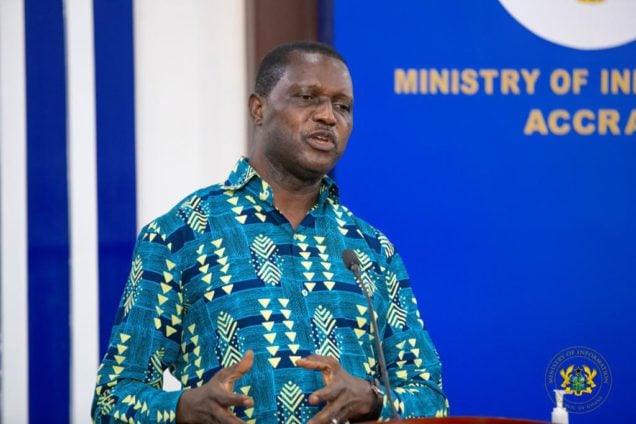
Resource person speaking at the panel discussion
More than 10% of the National Health Insurance Scheme’s (NHIS) budgetary allocation goes towards financing healthcare for patients with hypertension and diabetes (non-communicable diseases), consistently ranking among the top five claims of the scheme.
This data was contained in a study jointly conducted by the National Health Insurance Authority (NHIA) and the Korea Foundation for International Healthcare titled; Exploring Diabetes and Hypertension among NHIS and Non-NHIS Members in Ghana under the theme, “Access, Affordability, and Outcomes: Rethinking Diabetes and Hypertension Management in Ghana.”
The study, which involved 930 individuals living with one or both conditions across all regions, indicated that even though the 10% of total expenditure underscores the schemes financial and social impact, it does not fully shield patients from the high cost of medications and services, particularly for those relying on mixed financing methods or paying fully-out-of pocket.
According to Prof. Gordon Abeka Nkrumah of the University of Ghana Business School, recent estimates in Ghana indicate that approximately 6.4% of adults have diabetes, while over 30.3% live with hypertension. A 2025 study revealed that the mean cost of treating diabetes in Ghana is GH¢3,187.57, while the cost for hypertension is approximately GH¢869,106, ranging from GH¢570,239 to GH¢1,202 million.
“This translates into billions of cedis in lost productivity, increased healthcare spending, and reduced household welfare. While these two diseases are consuming over 10% of total claims expenditure, it is not just simply budgetary concern but a developmental crisis,” he mentioned.
Other sections of the report revealed that most patients (95.59%) were insured under NHIS and primarily sought care from primary-level facilities, with a striking 97.85% of these facilities credentialed by NHIA. Encouragingly, a high proportion of patients adhered to prescribed treatments (98.28%) and reported making dietary changes (81.4%). Nevertheless, engagement in physical activity (51.72%) and weight management (23.55%) remains low, even as obesity rates soar, with 58.39% of respondents classified under Obesity Class III.
Also, access to care is clearly improved through NHIS, with nearly 94% of enrollees reporting no barriers, compared to 38% of out-of-pocket (OOP) payers who faced significant difficulties. But while access is not enough, Prof. Nkrumah posed the following questions: “Are our primary care systems adequately resourced to provide routine, high-quality care for chronic disease patients? Is the NHIS benefit package sustainable, given the growing burden of non-communicable diseases? What is the fate of the uninsured, who face catastrophic out-of-pocket spending, delayed diagnoses, and avoidable complications?”
To change this trajectory, Prof. Nkrumah called for the equipping of community clinics with diagnostics, medications and trained staff to handle non-communicable diseases (NCDs), massive campaign focused on nutrition, exercise, NCDs screening must be offered routinely through maternal health clinics, school health services among others.
Senior Director in charge of Special Initiatives at NHIA and Liaison to the Ministry of Health, Dr. Anthony Ginpong lamented on the inadequacy of professional health assistants at the community level, suggesting that, looking at the Tanzanian model, where health centres are equipped to handle immediate cases, reducing the need for hospital referrals. In contrast, Ghana’s doctors are concentrated in major hospitals like Korle Bu and Komfo Anokye, receiving complex cases that could have been managed at the community level. Dr. Ginpong emphasised the need for a redistribution of human resources, deploying well-trained professionals to serve in community settings to ensure that the concept of free primary healthcare is being developed to shift the focus from individual health to population health.
BY Prince Fiifi Yorke
The post NHIS Spends 10% On Hypertension, Diabetes – Report appeared first on DailyGuide Network.
Read Full Story






















Facebook
Twitter
Pinterest
Instagram
Google+
YouTube
LinkedIn
RSS